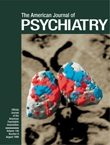To the Editor: In the introduction to their article, Rachel Yehuda, Ph.D., and colleagues
(1) wrongly concluded from Solomon et al.’s study
(2) of Israeli soldiers who developed posttraumatic stress disorder (PTSD) as a result of combat-related stress that “that study provided…empirical demonstration of a greater vulnerability of offspring of Holocaust survivors to…stressful events.” This conclusion is not supported by Solomon et al.’s data. Solomon et al. may only have demonstrated that some of them were more vulnerable to PTSD. They did find statistically significant differences between their index and control groups in the number of symptoms reported. Inspection of their findings, however, suggests that there was considerable overlap between the groups. Furthermore, the mean frequency of any of the five symptoms for which data are reported is less than one per participant, raising some question about the clinical significance of the findings. Finally, because the study was based on questionnaire self-reports, the results may represent nothing more than differences in proneness of the respective groups to report symptoms and not a difference in vulnerability to PTSD.
By contrast, two community-based studies that used probability sampling techniques and widely differing measures of functioning failed to find differences between adult children of survivors and appropriate comparison groups
(3,
4).
Dr. Yehuda et al.’s studies (1; R. Yehuda et al., unpublished data, 1998) help us understand the significance of Solomon et al.’s finding. Dr. Yehuda et al.
(1) selected a group of Holocaust survivors with PTSD and assessed their adult children. In limiting their study to this population, they reduced the risk of biased findings that might result from their nonrandom sampling method. They found that the children of these survivors were at greater risk than their comparison group for developing PTSD.
What can we conclude from the studies already mentioned about the intergenerational effects of prolonged, potentially traumatic stress? The community studies cited found no evidence for it under normal circumstances in the adult children of people exposed to such stress. (They did not show that there is no difference; one cannot prove the null hypothesis.) Solomon et al.’s study may have shown that some of these children are vulnerable in severe, life-threatening circumstances. Dr. Yehuda and colleagues’ studies demonstrated that having a parent with PTSD may be one of the factors predisposing children to this vulnerability.
That troubled families have vulnerable children is not a new discovery. It is not unique to families of survivors of the Holocaust or of ex-prisoners of war from the various wars in the Far East who have been shown to suffer long-term morbidity and mortality rates similar to those of Jewish and non-Jewish survivors of the Nazi extermination camps. What may be unique, but is yet to be established, is whether this occurs with greater frequency or in different ways in the families of survivors of these atrocities or in other conditions of prolonged, severe adversity. Neither Solomon et al.’s study nor Dr. Yehuda et al.’s studies can answer this question, nor have they claimed to do so.

